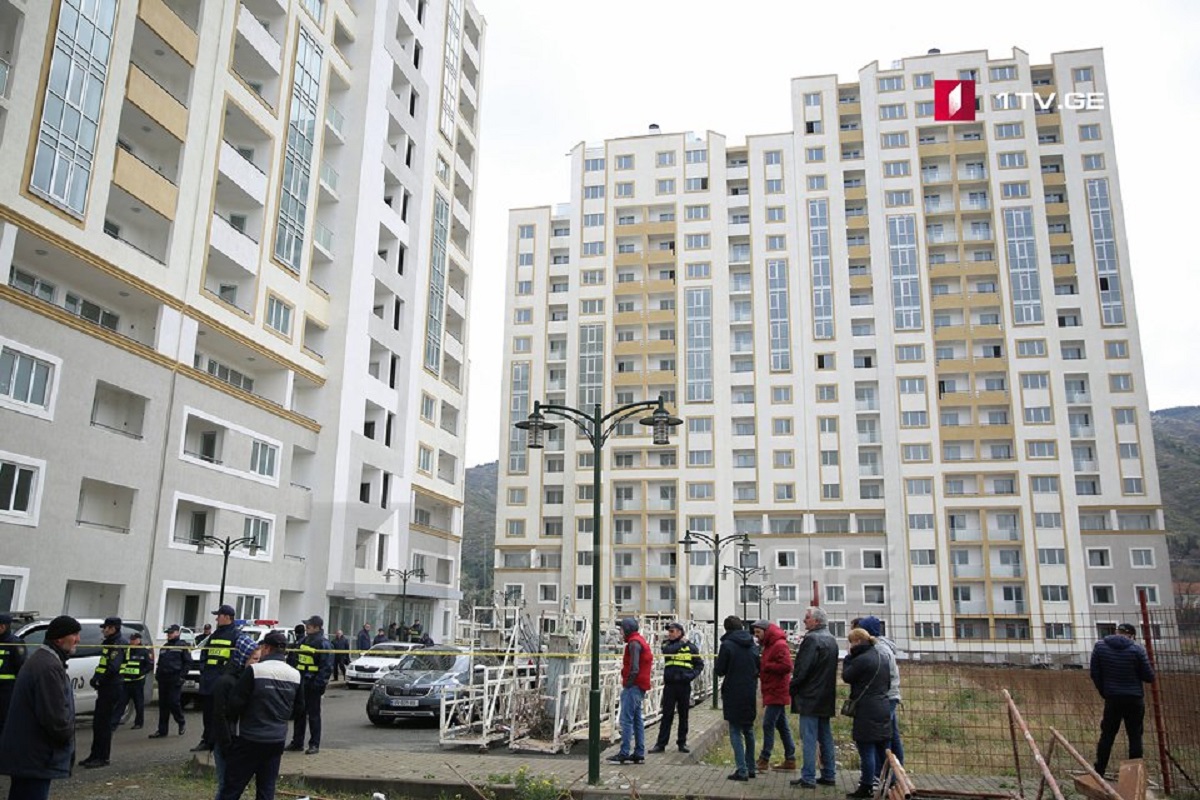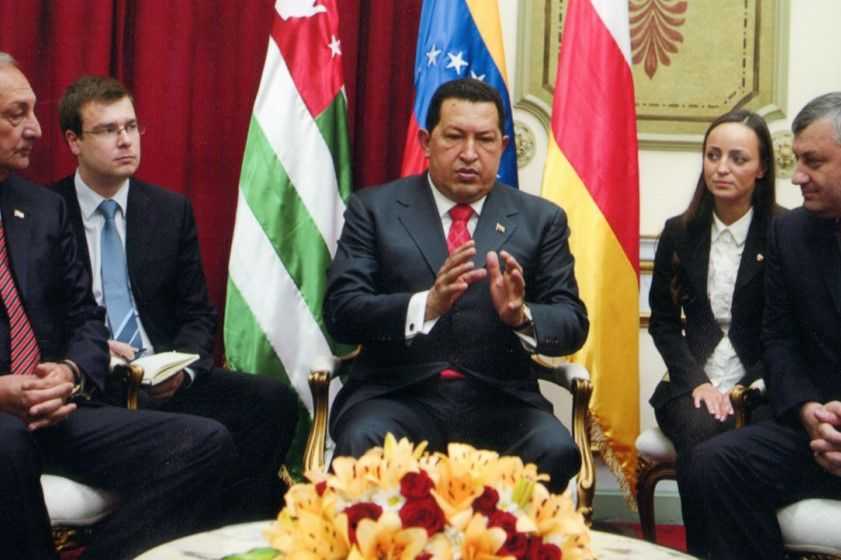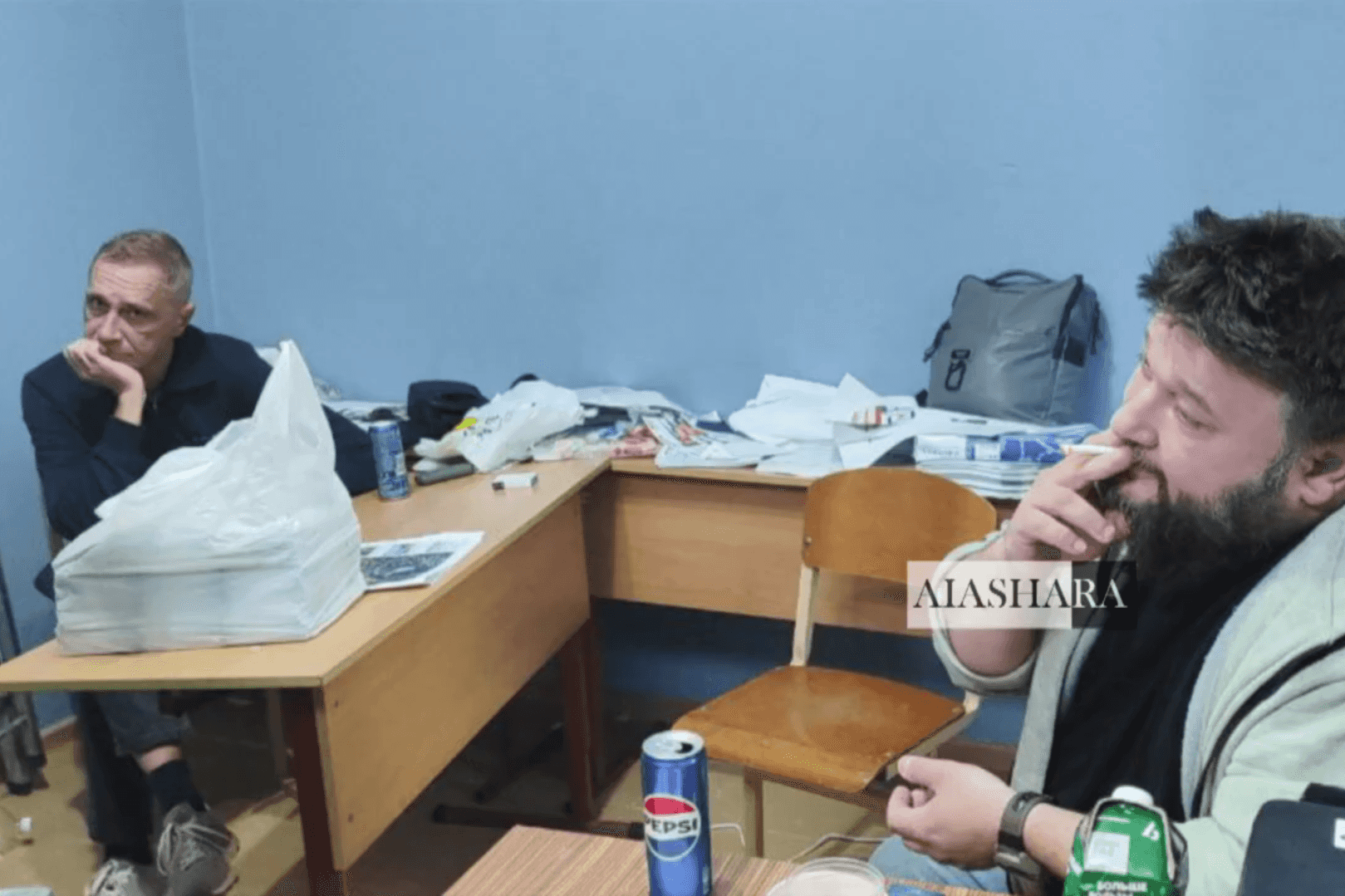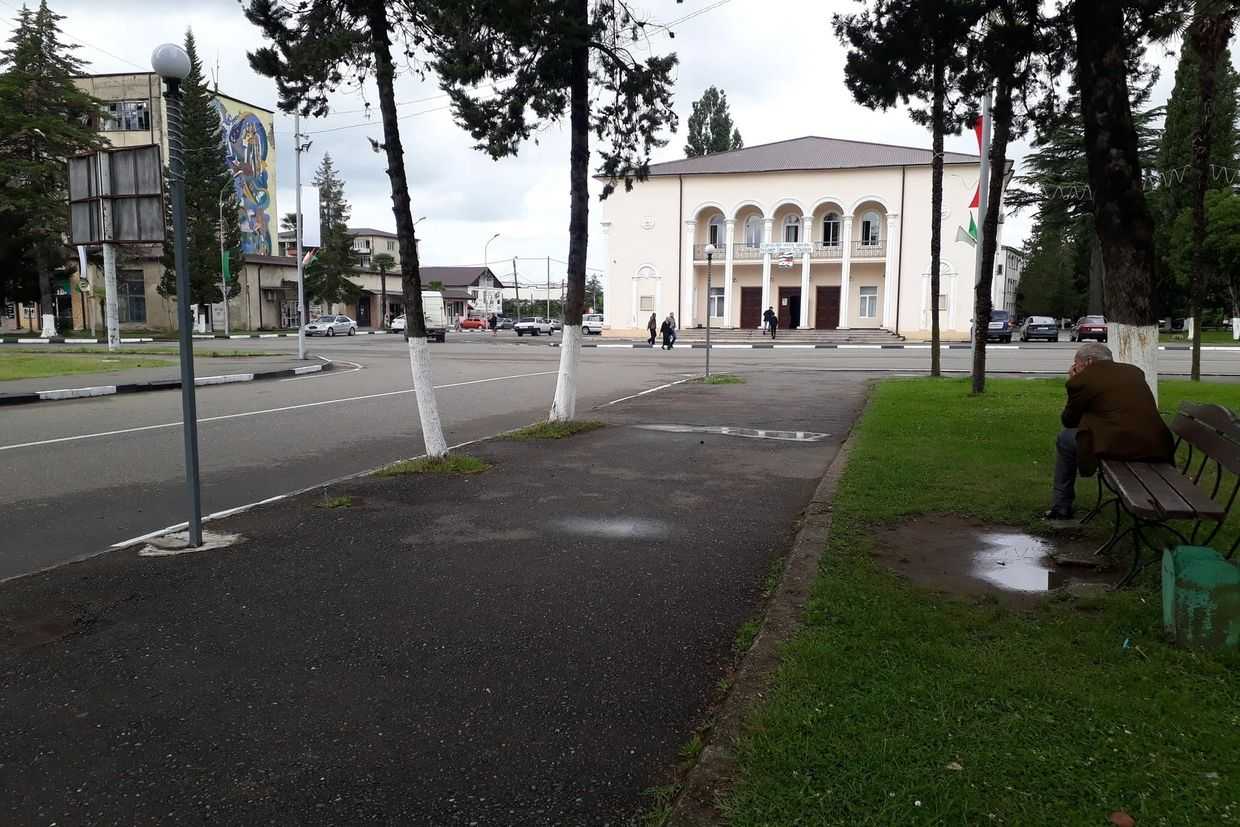

Over 200 families of internally displaced persons (IDPs) from Abkhazia and South Ossetia have occupied the flats of a private construction company in Tbilisi, refusing to move until the government provides them with housing. A number of neighbours protested against the IDPs, claiming they felt unsafe.
The flats that IDP families have taken over in the Dirsi Residential Complex are set to be bought by the Ministry of IDPs as part of an IDP resettlement programme, ‘as soon as repair work is finished’.
The Ministry of IDPs condemned the move and said that these families would not be provided with housing until they left the buildings. They said that each family had to be assessed individually and that a decision about housing would be made based on their needs.
The IDPs occupied the two buildings on 1 April. A spokesperson for the ministry told OC Media that most of the families came from Abkhazia.
‘We have come here to claim the houses we deserve. We demand nothing else but what we deserve’, one of the protesters told Liberali on 2 April.
After the IDPs took over the buildings, police blocked the entrances and refused to let anyone in, including journalists. Relatives of those inside claimed this was inhumane as they were being deprived of food, water, and heating. They said the entrance was blocked to force them out of the building.
‘Children were freezing; they were demanding water. There is a water source in the basement, but we can’t take children there. They said we should go. We would if only we had a place to go’, said one of the protesters.
Several residents of the neighbouring buildings complained about the discomfort they said they had experienced, saying they no longer felt safe.
‘The [construction] company is not fulfiling its obligations. This should have been a secured, isolated neighbourhood […] It’s the third day that we are in unbearable conditions. These people walk on the lawn, I don’t know who they are. We can’t come down at night, we’re afraid to park the car. I bought a flat in this building to feel secure’, one local resident, Teona Mchedlishvili, told 1TV on 1 April.
‘The vulnerable should be prioritised’
According to data provided to OC Media by the Ministry of IDPs, there are almost 283,000 people are registered as IDPs in Georgia, 90,000 families.
According to the ministry, over 40,000 families have been provided with housing within a long-term resettlement programme. Of these, 21,000 were prior to 2013, of which 5,000 also received financial compensation, and an additional 19,000 families received flats after 2013.
Deputy IDP and Health Minister Grigol Giorgadze said that those who could not be provided with a house right now would be able to apply for the next year.
Meanwhile, he said the ministry provided different services for them, including covering rent.
The ministry is currently negotiating with the IDPs in the Dirsi buildings, resulting in them leaving one of the buildings.
‘The ministry will study the cases of up to 200 IDP families who have occupied the buildings and will provide maximum support to those who have emergency needs. The illegal invasion of the buildings is a violation of the rights of thousands of IDP families who are conscientious in waiting for their turn to be provided with homes, and because of these developments, this process is being hindered’, a statement issued by the ministry on 2 April said.
The statement elaborated that the situation of the IDPs who had forced their way into the buildings would be assessed individually according to individual scores, which would determine who should be prioritised based on their immediate needs.
‘By the end of June, the ministry will provide families with 800 flats acquired from different building companies, including in Dirsi. The budget for this has been increasing since 2012. In 2012 it was ₾28 million ($10,000) and it reached ₾135 million ($50 million) in 2018. As for 2019-2020, ₾328 million ($122 million) has been allocated from the budget for this purpose’, the statement by the ministry said.









